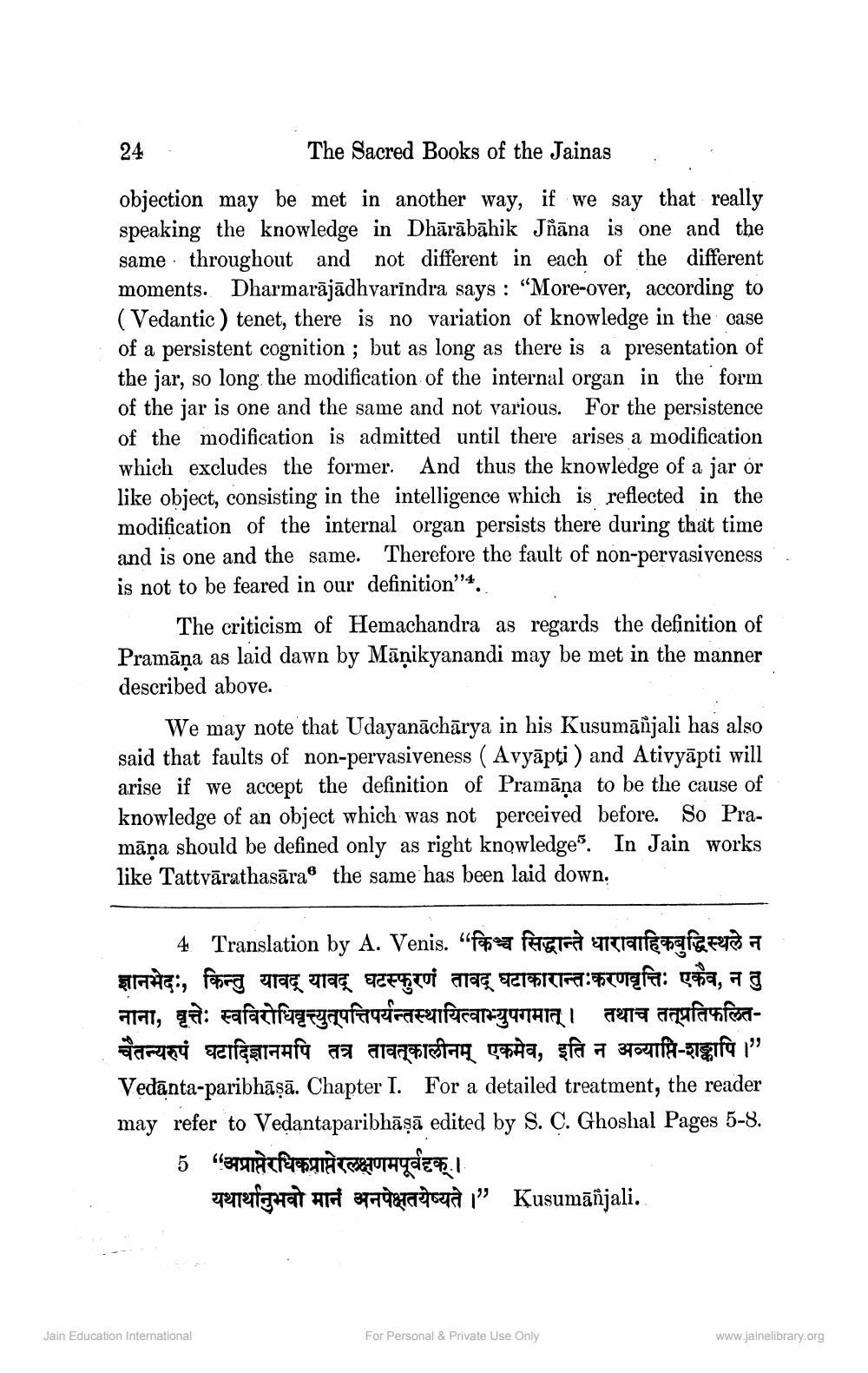________________
The Sacred Books of the Jainas
objection may be met in another way, if we say that really speaking the knowledge in Dhārābāhik Jñana is one and the same throughout and not different in each of the different moments. Dharmarājādhvarindra says: "More-over, according to (Vedantic) tenet, there is no variation of knowledge in the case of a persistent cognition; but as long as there is a presentation of the jar, so long the modification of the internal organ in the form of the jar is one and the same and not various. For the persistence of the modification is admitted until there arises a modification which excludes the former. And thus the knowledge of a jar or like object, consisting in the intelligence which is reflected in the modification of the internal organ persists there during that time and is one and the same. Therefore the fault of non-pervasiveness is not to be feared in our definition".
24
The criticism of Hemachandra as regards the definition of Pramāņa as laid dawn by Manikyanandi may be met in the manner described above.
We may note that Udayanacharya in his Kusumāñjali has also said that faults of non-pervasiveness (Avyāpti ) and Ativyāpti will arise if we accept the definition of Pramāņa to be the cause of knowledge of an object which was not perceived before. So Pramāņa should be defined only as right knowledge". In Jain works like TattvarathasaraR the same has been laid down.
4 Translation by A. Venis. "ffgrcà ancianfengite A ज्ञानभेदः, किन्तु यावद् यावद् घटस्फुरणं तावद् घटाकारान्तः करणवृत्तिः एकैव, न तु a1a1, qà: zafarìfugzyqqfaqezatenfucanganura | aena aqufanfeaचैतन्यरूपं घटादिज्ञानमपि तत्र तावत्कालीनम् एकमेव, इति न अव्याप्ति-शङ्कापि । " Vedanta-paribhāṣā. Chapter I. For a detailed treatment, the reader may refer to Vedantaparibhāṣa edited by S. C. Ghoshal Pages 5-8. 5 " अप्राप्तेरधिकप्राप्ते रलक्षणमपूर्वदृक् ।
यथार्थानुभवो मानं अनपेक्षतयेष्यते ।” Kusumanjali..
Jain Education International
For Personal & Private Use Only
www.jainelibrary.org




